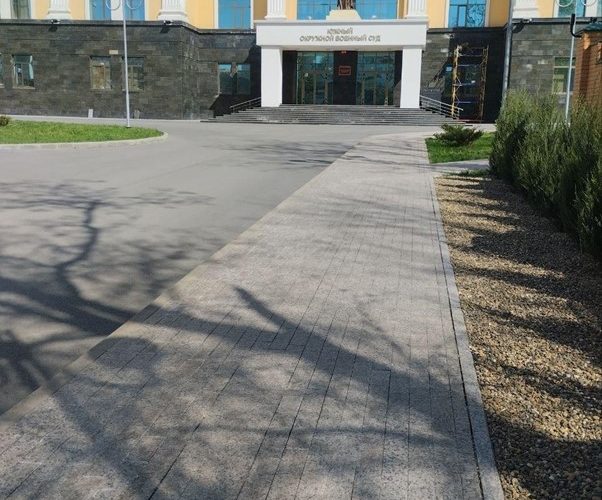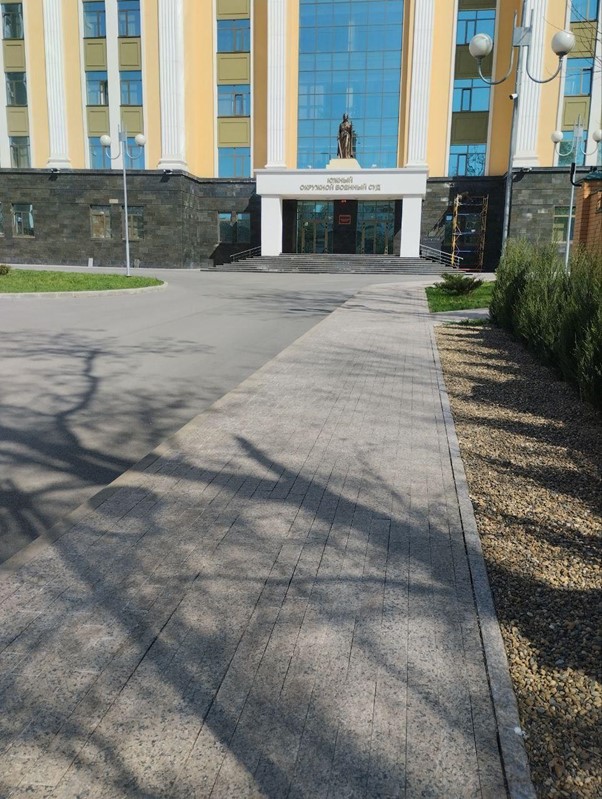

About the case: Five Ukrainian prisoners of war (Ivan Vladimirovich Bezlepkin, Yuri Yuryevich Makarenko, Gleb Alexandrovich Petruk, Vladimir Ivanovich Puzanov, Dmitry Nikolaevich Reyvakh) are accused of participating in terrorist communities (Part 2, Article 205.4 of the Criminal Code of the Russian Federation).
The case is being heard by the Southern Military District Court, Judge Gurgen Serzhikovich Dovlatbekyan.
The interrogation of the defendant Makarenko began. The interrogation was led by the defense attorney:
– At the time of your service in the “Donbass” battalion, did you know that it was declared a terrorist organization?
– No.
The prosecutor asked several general questions, after which the judge continued the interrogation.
What did you do in the battalion?
– Patrolled and guarded checkpoints.
– What did you do while on these assignments?
– Observed the area.
– Just observed?
– No, if we spotted enemies, we reported to command on what needed to be done.
– And who, in your understanding, was the enemy?
– Mercenaries.
– What kind of mercenaries?
– From various countries.
– From which ones, for example?
The judge continued asking questions about the composition of the battalion, the presence of equipment, and its quantity.
The prosecutor submitted a motion claiming inconsistencies in the defendant’s testimony and requested the previous testimonies be read out.
The defense objected, arguing that the motion was unsubstantiated and non-specific, as the defendant had already provided exhaustive statements. The judge granted the motion, stating that questions about the admissibility of the motion were premature.
The prosecutor began reading the records of the testimonies.
The defense attorney filed a motion to review the case protocol and the defendant’s signatures. The court granted the motion. The defendant did not recognize any of his signatures.
The interrogation of the defendant Petruk began. The questions were identical to previous interrogations: how he joined the service, what he did there, if he noticed any nationalist views among his comrades, if he knew that the Donbass battalion was recognized as a terrorist organization by Russia, and how he was captured.
© 2019-2021 Independent public portal on impartial trial monitoring
